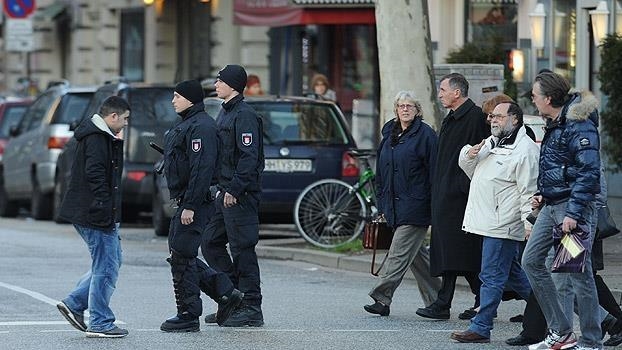Germany approves bill to tighten immigration laws
New changes in immigration laws, which have to be approved by parliament, will mainly affect people with so-called subsidiary protection status

BERLIN
Germany's new center-right coalition government approved a bill to tighten immigration laws on Wednesday, just a few weeks after taking office.
As part of the bill, refugees from specific countries will no longer be able to bring close relatives to Germany. The Cabinet also intends to end the accelerated naturalization process for particularly well-integrated immigrants.
The new immigration laws, which must be approved by the German parliament, will also affect people with subsidiary protection status.
These are refugees who, despite not being granted asylum or refugee protection here, are permitted to remain because they face political persecution, torture, or the death penalty in their home countries. Many civil war refugees fall into this category.
According to the draft law, some 388,074 people with subsidiary protection status were living in Germany by the end of March.
For these people, the possibility of bringing family members to Germany is limited to close relatives, i.e., spouses, registered partners, and minor children.
For the next two years, recipients of subsidiary protection will be unable to bring family members to Germany. Hardship cases are exempt. However, the draft law does not specify who these could be.
Family reunification for refugees without asylum status had already been suspended from March 2016 to July 2018 by the then-Christian Democratic Union (CDU) and Social Democratic Party (SPD) coalition. The reason given at the time was to avoid an overload in taking in more refugees and integration problems.
Furthermore, the government also intends to reverse the accelerated naturalization process for particularly well-integrated immigrants.
Meanwhile, the reform of citizenship law passed by the former government remains in place.
According to the coalition agreement, the CDU, CSU, and SPD intend to keep the waiting period for regular naturalization from eight to five years and the right to dual citizenship.
Germany's new conservative-led coalition government has moved quickly to implement its agenda in its first week in office, with unprecedented measures to curb irregular migration.
On the directives of conservative Chancellor Friedrich Merz, the Interior Ministry has announced enhanced border controls, as well as new procedures, to turn back irregular migrants and asylum seekers at the country’s borders.
Interior Minister Alexander Dobrindt has revoked a 2015 verbal instruction—issued during Angela Merkel's chancellorship—that permitted undocumented immigrants to enter Germany and seek asylum on humanitarian grounds.
The new government's move aims to reduce asylum applications, which reached 352,000 in 2023 and showed only a moderate decline to 250,000 last year. The Merz government argues that under EU law and directives, asylum seekers must file their applications in the first EU country they enter, such as Greece or Italy, rather than traveling to Germany before their applications are processed.
In addition to strengthened border controls, the Merz government plans to significantly reform Germany's asylum system. Changes include faster processing times and more deportations of rejected asylum seekers and violent offenders to their home countries.
The government intends to swiftly conclude bilateral agreements with transit and origin countries to streamline the repatriation process for rejected asylum seekers.
Anadolu Agency website contains only a portion of the news stories offered to subscribers in the AA News Broadcasting System (HAS), and in summarized form. Please contact us for subscription options.







